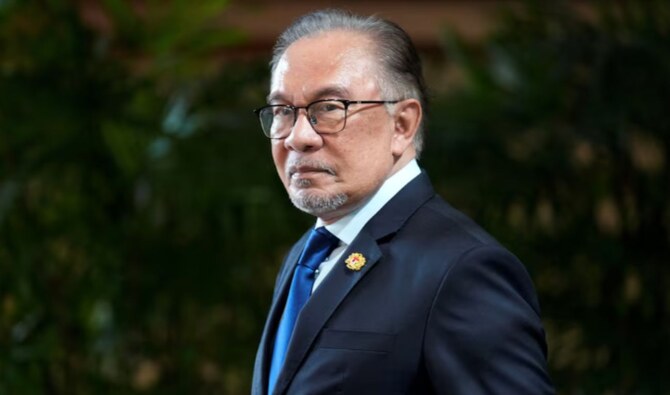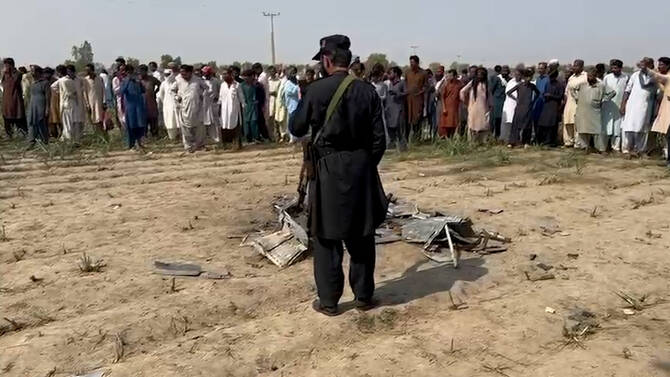ISLAMABAD: Malaysian Prime Minister Dato’ Seri Anwar Ibrahim will arrive in Pakistan on Wednesday on a three-day visit to strengthen ties in trade, connectivity, energy and other sectors, the Pakistani foreign office said on Monday.
Pakistan and Malaysia enjoy a strong bilateral relationship, rooted in shared Islamic values and historical ties. Since 1957, they’ve fostered economic cooperation, defense collaborations, and cultural exchange. The Pakistan-Malaysia Free Trade Agreement of 2008 boosted trade and investment, while regular high-level visits have solidified their partnership, underpinned by mutual respect and trust.
The Malaysian prime minister will be undertaking the visit from October 2-4 on the invitation of his Pakistani counterpart Shehbaz Sharif, according to the Pakistan foreign office. He will be accompanied by a high-level delegation comprising Malaysian ministers, deputy ministers and senior officials.
“Prime Minister Dato’ Seri Anwar Ibrahim will hold meetings with Prime Minister Muhammad Shehbaz Sharif,” the Pakistani foreign office said in a statement.
“The two sides will discuss a wide-ranging agenda to further strengthen Pakistan-Malaysia ties in diverse fields including trade, connectivity, energy, agriculture, halal industry, tourism, cultural exchanges and people-to-people contacts.”
During the visit, the Pakistani foreign office said, both sides will also discuss regional and global developments. “This visit provides an important opportunity to further strengthen Pakistan-Malaysia relations,” it added.
Bilateral trade between both countries was recorded at $1.5 billion in 2023-24. The major exports of Pakistan to Malaysia include rice, condensate oil, onions, potatoes, home textiles, corn, seafood, and meat, palm oil and its products, petroleum, LNG, computers and laptops, nonwoven wadding, and fiberboard, according to the High Commission of Pakistan in Malaysia.
Tourism between both countries has gained momentum over the past few years and Malaysia currently ranks among the top tourist source countries to Pakistan. Around 160,000 Pakistani nationals were residing in Malaysia and over 3,800 students from Pakistan were also enrolled in Malaysian higher education institutes, making the country the third largest source of international students in Malaysia.
Pakistan is also one of the major workforce source countries for Malaysia in various key sectors including plantation, construction, manufacturing, agriculture and services, it added.

















